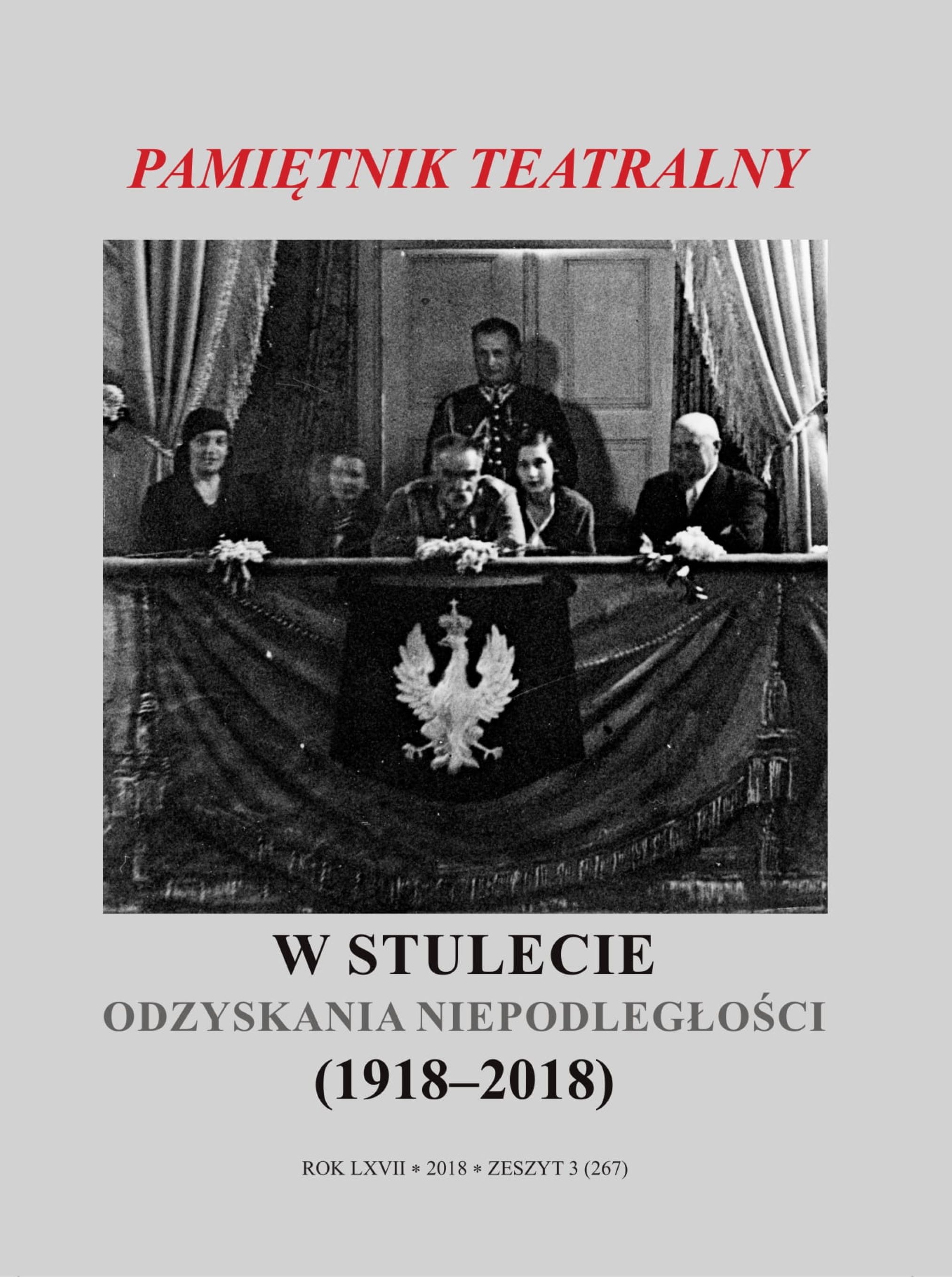Vol. 67 No. 3 (2018): Poland's independence centenary (1919-2018)
"Give us a sense of strength and give us Poland alive so that words may come true over this happy land," prays Konrad in Stanisław Wyspiański's "Wyzwolenie" (Liberation). In November 1918 the aspirations and hopes of many generations came true, and the words of Konrad on the stage of the Polish Theatre in Warsaw were uttered by Juliusz Osterwa in the presence of Józef Piłsudski, the head of the reborn state. The Chief of State's unusual letter opens this jubilee issue, and the November days in Warsaw theatres are covered in detail by the first of the articles. It is followed by the subsequent cities and theatres: Krakow and stage narratives about Piłsudski and Legions; Lviv and the Municipal Theatre in the 1918/19 season, which began with the defence of the city's freedom, with an annex that significantly and colourfully complemented Andrzej Pronaszko's biography; Torun and Pomerania, persistently seeking its own path to the National Theatre; Łódź, where an inferior drama was a stage success thanks to the context of regained independence. Additionally, we publish a study on Juliusz Osterwa’s concept of socially engaged theatre, carried out in Warsaw and Vilnius, and an article on school celebrations of the Independence Day in the Second Polish Republic. The account of the exhibition devoted to futurism in the Polish avant-garde theatre (including Pronaszko) only seemingly recedes from the main subject: it shows a world where one no longer had to fight for freedom.





